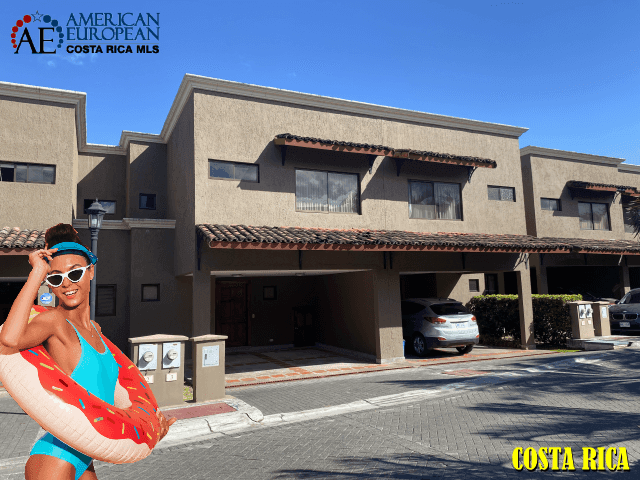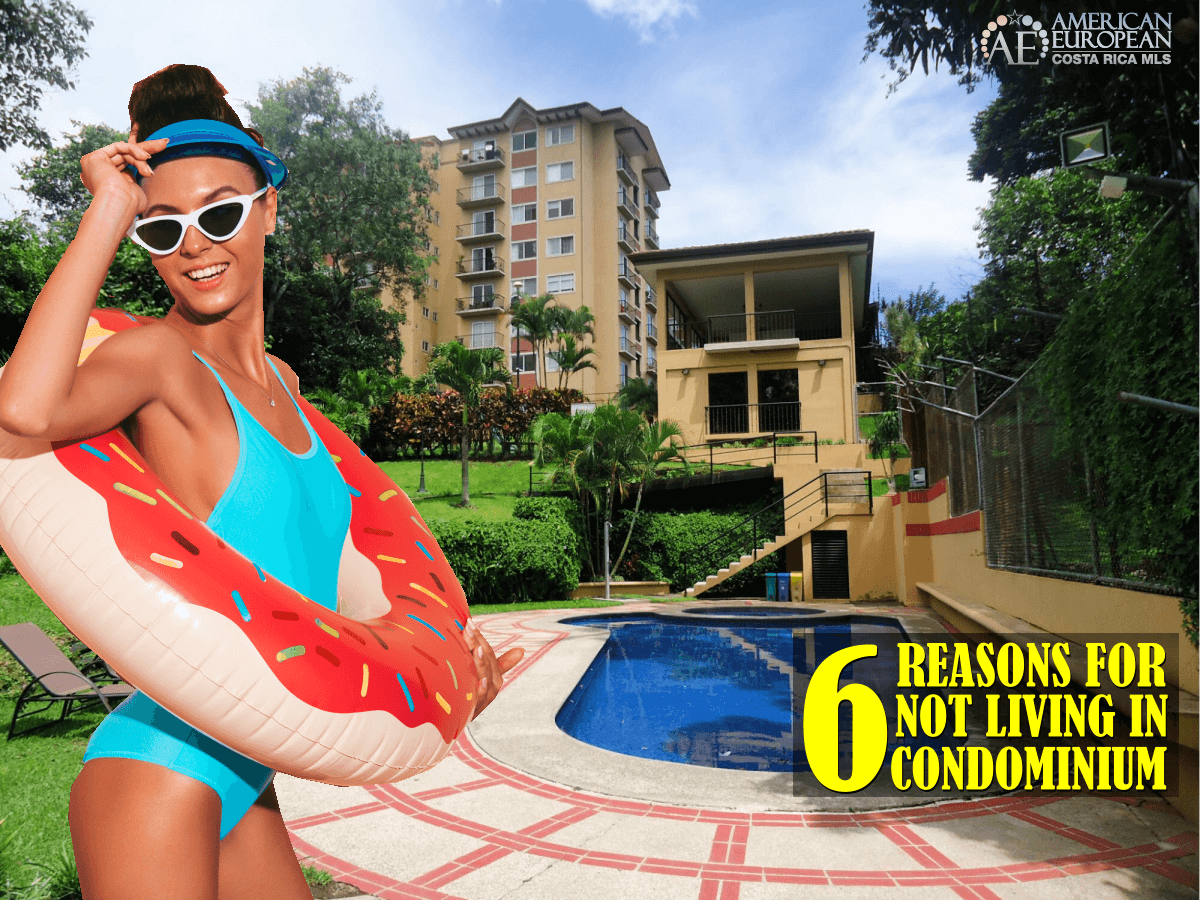Estimated Reading Time: 3 minutes
To live in a condominium in Costa Rica is not for everyone. Some love the security and amenities you have when living in a condominium. Others want more privacy and don’t want to pay for security and amenities. Therefore, before purchasing a property in a gated community, you should decide whether you want to live in a condominium or not.
Some properties in gated communities might seem to be condominiums, but they are not. In another blog, I described the differences between gated communities and condominiums to clarify misunderstandings.
Every condominium has its bylaws or CC&Rs registered in the National Registry when it was constituted. Living in a condominium takes discipline and the will to put up with neighbors you might or might not like. There will be moments when you and your neighbors have different lifestyles and use of the common and private areas. Many buyers forget to check those bylaws before purchasing a property and think about the problems they can create.

1. Cost of the Security
You might like the advantage of having security guards at the gate and throughout the community. With good security, you don’t have to worry about traveling or the safety of your family and belongings.
The cost of security is usually more than 50% of the HOA fee and can often become exorbitant. With rising labor costs, some condominiums have installed cameras to replace roaming security guards. So, before you sign the purchase of your new condo, see if you can afford to pay the monthly HOA fee.
2. Privacy
It is often challenging to have privacy in your condo. Most condominium buildings don’t have shared walls between units, so check on that before purchasing. When the unit is a townhouse, although you might have double walls between you and your neighbor, there may be very little distance between the fronts of each unit.
3. Kids
If you don’t like the noise of kids playing, you’re probably okay when buying into a condo building. People with kids usually live in condominiums with townhouse units. Check for toys and children’s bicycles in the carports of your future neighbors.
4. Pets
Some people love pets, and others hate the noise they can make. Either way, first check the bylaws to see if pets are allowed, how many, and which breeds are not.

5. Parking
Before you purchase, check if you’re buying parking spots and how many (as well as storage). In some condominiums, private parking has its own title; in others, the parking spots are distributed in the bylaws. Check how many parking spots you will be buying. Most condominiums do not allow condo owners to use the visitor parking for their extra car.
6. Financial Statements
Not all condominiums are healthy financially. Always request the last financial statements and the last two HOA meeting minutes. Maybe you’ll get hit with a huge special assessment to repair the pool. Or perhaps a few divorced condo owners haven’t had the funds to pay the monthly HOA fees for years.
If you plan to live in a condominium, you may find other reasons that are as important as the six mentioned above. Therefore, we recommend requesting the bylaws and reading them from cover to cover. Also, use a lawyer who specializes in real estate for your closing instead of just any lawyer. For your purchase or sale, contact us now, we are the experts.



















1 Comment
Buying ANY condominium incurs risks you may not realize when you buy. Condo Boards are not keen to advertise in their meeting minutes that the condo is underfunded, or that a large expense is looming, such as having to repair a water main under condo property. Also, some long-serving members on condo boards love to retain their control over the property, and will resist the efforts of newcomers to make changes, no matter what the will of the majority of owners may be. Since most condo owners are passive, don’t want to get involved in conflicts, newcomers can have a difficult time getting changes made.
These problems don’t exist for owners of individual properties in gated communities.